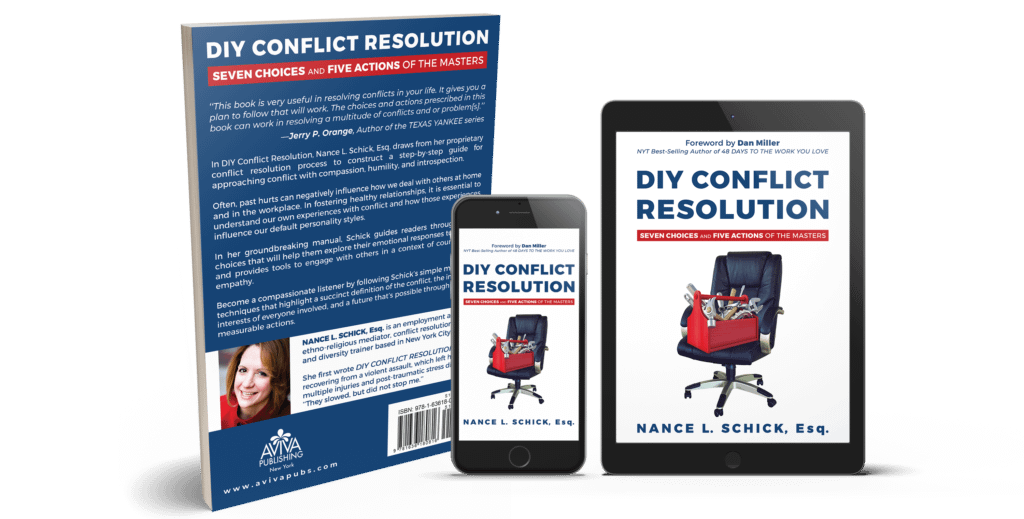Does the conflict feel bigger than you can describe?
Conflicts with Others
Conflicts with others can usually be defined clearly and succinctly as [person’s name] and I disagree about [topic].
You don’t need to recite all the facts leading up to the disagreement. My role is not to judge you or anyone else in the process. It’s to help you see beyond the conflict and all the possibilities that might get you there.
First, you need to know where to focus, even if it’s on a long list of things that are driving you apart. In mediation, we typically address whatever’s on your list of conflicts (and the lists of whoever else is involved). I want you to leave as free and complete as possible.
Notice that the verbs you use in Action One are in the present tense. This is intended to get you present to what is going on for you in this moment, not what you think happened in the past and your judgement of it. When you use past-tense verbs, you are stuck in the past.
Don’t worry. I won’t leave you there. You have a bright future ahead, beyond this conflict.
Common workplace disagreements:
- My employer and I disagree about the safety of my workplace.
- My co-worker and I disagree about the harmlessness of his touching me.
- My co-workers and I disagree about the seriousness of jokes about certain topics.
- My employees and I disagree about the importance of being on time.
- My boss and I disagree about when I am supposed to be available for work.
- My boss and I disagree about how much work I can do well.
- An injured employee and I disagree about his need to return to work.
- The State and I disagree about which of my independent contractors is really an employee.
- The State and I disagree about my need for certain insurance policies.
https://thirdearcr.com/know-case-right-mediation/

